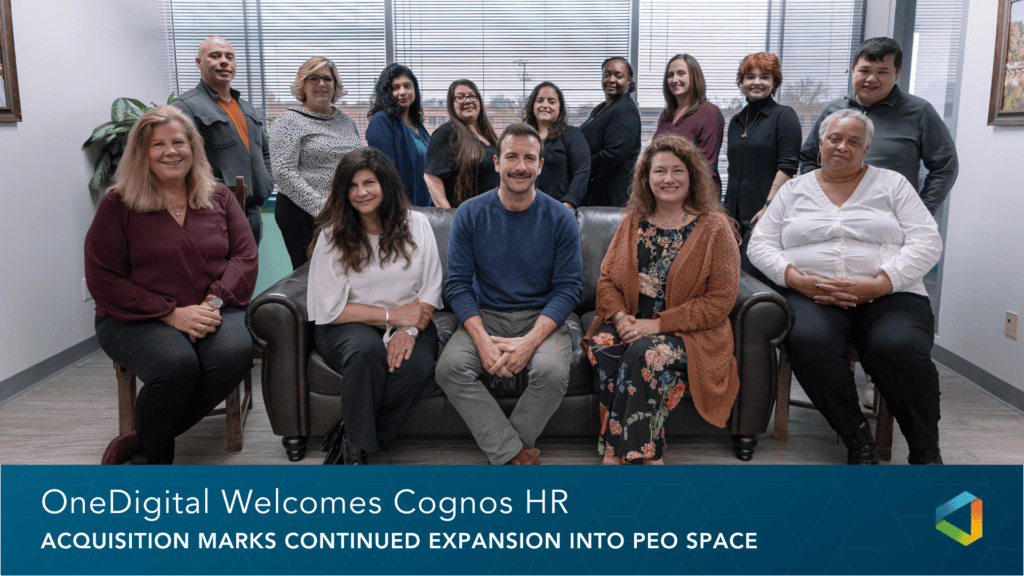No Headaches
Maximizing Efficiency: Understanding Fractional HR Support
Maximizing Efficiency: Understanding Fractional HR Support
Employers have been grappling with two continuous years of acute financial uncertainty, historic levels of turnover, and unusually fierce competition to recruit and retain talent.
Now, many employers are discovering that these challenges have spread their HR teams too thin and reduced their ability to tackle both day-to-day responsibilities and larger workforce planning issues.
HR has played an elevated role in the various workforce crises of recent years, and neglecting HR is simply not an option for employers who want to remain competitive. Getting HR wrong can have severe financial consequences, with resignations, mis-hirings, and low morale leading to serious productivity losses. However, in today’s difficult economic climate, it may not be practical or affordable to hire additional full-time HR personnel. This is where fractional HR support can really make a difference.
Fractional HR support enables companies to secure additional HR capacity without expanding their headcount or breaking the bank. Bringing in this type of additional HR firepower enables organizations to strategically expand their existing HR capacity, supplement areas of weakness, and allow their current HR team members to focus on organizational priorities. With fractional HR support, it has never been easier to access the reliable, effective, and qualified HR expertise your organization needs at a rate you can afford.
What is fractional HR?
Fractional HR refers to the practice where an organization partners with an outside third-party consultant to serve as an extension of its HR team. The nature of this type of partnership can vary in scope, with fractional HR consultants providing tactical support, leadership and strategic planning, and everything in between.
Fractional HR services often work with employers on compliance issues, which is a notoriously difficult and evolving discipline. Keeping up with HR compliance can be very time-intensive and the price of non-compliance can be quite high. The price of non-compliance has increased more than 45% in just the last ten years and shows no signs of slowing down.
In the past few years, issues such as covid-19, the Great Resignation, and Quiet Quitting have led to HR departments being overworked and burnt out as they lurch from one crisis to another. With a consultant serving as an extension of the team, employers can offload some of their day-to-day work and free up their bandwidth to focus on priorities such as company culture and employee engagement.
What are the benefits of using an outside firm for HR support?
1. Flexibility
One of the key benefits of Fractional HR Support is flexibility. Businesses can choose the level of support they need, from basic HR functions such as payroll and benefits administration to more complex tasks such as employee relations and compliance. This means that businesses can tailor their HR support to their specific needs without having to pay for services they don't require.
2. Customization
Fractional HR services offer a customizable model that can meet your organization’s needs on short or long-term projects for any size budget. Outsourcing some of your HR needs provides businesses with the benefits of a dedicated and nimble HR team while allowing leaders to focus on their core business functions.
3. Dedicated Expertise
Another benefit of Fractional HR Support is the expertise that comes with it. Third-party HR providers have dedicated HR professionals who have a wealth of experience in various HR functions. This means that businesses can benefit from the knowledge and skills of many seasoned HR professionals at once.
By removing the policies, paperwork, and procedures that can overwhelm even the most dedicated HR staff members, fractional support enables your team to focus on what really matters: the needs of your workforce.
How do I know if my company is a good fit for fractional HR support?
When evaluating the need for fractional support, consider whether a flexible third-party partner could provide additional value to your HR initiatives and workflow. Ask the following questions:
- Is your organization’s HR department struggling with capacity?
- Is your HR team battling with high turnover?
- Do you frequently find yourself in need of additional HR expertise?
If the answer to these questions is yes, it’s likely that you would benefit from an outside resource that can assist your team.
Human Resources has become increasingly complex over the last few years. Is your team equipped to handle what the future holds? Connect with our workforce strategists and HR Consultants for customized solutions that replace doubt with peace of mind.




